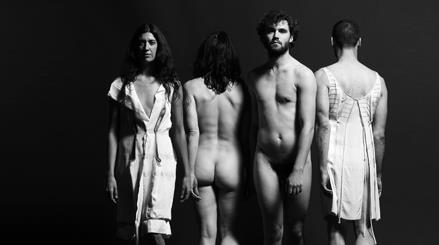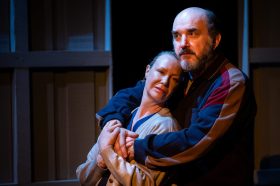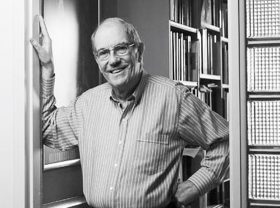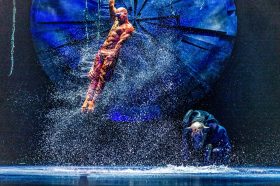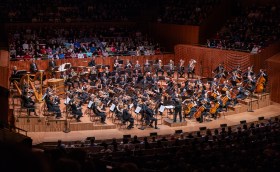If you are a performing-arts-market-junkie addicted to flogging your arty arse to the global lions-den of presenters, read this.
Touring your work in a recessive economy on the ever-shrinking European arts festival and venue circuit is pretty much based on what exposure you can get and how savvy your producer-networking motor-mouth can be.
But now and then comes along a conversation that isn’t about your flashy business card, but more about who and what we are creating for as a global collective community of artists-meets-producers-and directors. There’s no need to pimp yourself out in the usual way to the usual suspects. IETM networking meetings are a better way of sleeping around with the arts.
I’ve been flitting around the coop of IETM Dublin with a flock of Australian high-flyer producer legends, including Sarah Greentree, Alison Halit and Harley Strumm. Talk about bottoms up. Here are the prime-time meetings with an international who’s who of artists, producers and presenters: who wants to catch a ride to Australia, who has a focus on Australian work in their festival or who is looking to exchange artist residency opportunities.
Our General Manager Amelia Bartak thought it might be a good idea to send me to the latest IETM conference in Dublin, since I can get disillusioned at the best of times by the dog-eat-dog of arts market chaos. IETM offers a softer alternative. You have a smorgasbord of people on offer and when you do finally have a conversation with a target you feel just that little bit better about your pimping.
The theme of this IETM Dublin was the big one: Trust. How do we as artists, curators, producers and cultural workers trust one another and the structures built to support our work? How do our audiences learn to trust us, to support the development of new types of work and models of presentation? How has the swift advance of technology changed the way we relate to one another? Has it impacted on our ability to trust one another?
I was auctioned off in the first Newsround session with 17 other budding artists, each of us given three minutes to spruik ourselves. I was inspired to hear about a vast array of projects from artists across the Euro divide, but what made it click, was the reciprocal pitch from presenters uttering the words ‘We are looking for artist with a project or idea to work with our Festival…’.
Sophie Travers hit the mark with a session entitled Do We Trust Showcases, which she presented with a line-up of top-notch-contributors. So many of us love to complain about showcases – and yet, they still have a key role in the buying and selling of productions internationally. Taking in three points of view – the artist, the programmer and the showcase organiser – the panel introduced their experiences. As a group, they looked at what we expect (and hope for) from showcases, what has worked in the past and how best to satisfy the needs of everyone involved.
I had a brilliant time meeting some of Ireland’s leading dance artists and choreographers in the beautiful surroundings of Dublin’s Dance House at an informal session. The artists were asked to introduce and discuss their work and practices, and through this, we got a better insight into the workings of the dance community in Ireland. We were also invited to participate in a discussion, asking questions and sharing our own experiences.
I came away thinking it is trust that creates the conditions for any change to occur; it is trust that binds communities; it is trust that allows any sense of democracy to exist. Without it, without the values that will allow trust in our fellow humans to be strong again, it will be impossible for us to get out of the critical state in which we find ourselves now.
I’m thinking about the next IETM scheduled in Greece this October, with the theme of Tomorrow. It seems fitting that I go in for seconds, since I called my latest work Tomorrow. Maybe I’m onto something worth selling.
And word on the street is that APAM in Brisbane in February 2014 is set to bring a fresh take on the Adelaide reign of the past. Stay tuned to OzCo announcements to head north for an easier way to have a romance with the presenter market under a Queensland palm tree.
Melbourne-based company Phillip Adams BalletLab recently premiered And All Things Return to Nature Tomorrow, choreographed and performed by Brooke Stamp and Phillip Adams with Deanne Butterworth, Matthew Day and Rennie McDougall in collaboration with Garth Paine, sound artist/composer and Matthew Bird, architect. Additional design by Susan Dimasi and Robin Fox. In development 2013/14: Thumb.
